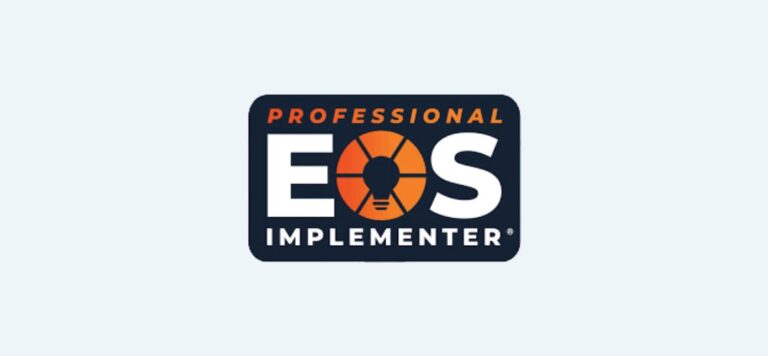Hold Yourself and Your Team Accountable
Picture an ultramarathon runner, miles into an exhausting race, finding strength in a simple mantra: “relentless forward progress.” This is more than just a runner’s resolve; it’s a powerful lesson for businesses setting their quarterly priorities. It’s not the act of setting these goals that counts, but the unyielding pursuit of them, step by determined step.
This concept isn’t just poetic – it’s practical and profitable. Businesses that laser-focus on their quarterly targets are not aimlessly running the course; they’re strategically sprinting towards success, often seeing 31% greater returns than those jogging along with annual goals. These goals are the mile markers of growth, but it’s the relentless pace towards them that makes all the difference.
Yet, a mantra alone won’t get a runner to the finish line of a 100-mile race; they need a training plan. Here’s where accountability comes into play. Accountability in business, much like in an ultramarathon, transforms goals from a distant finish line into achievable checkpoints, ensuring every quarter brings you closer to victory. Yet, 80% of leaders struggle to keep their team on track, despite knowing its importance. Let’s look at how to hold yourself and your team accountable to quarterly priorities to make relentless forward progress towards growth.
Understanding Accountability
Let’s set something straight: “They need to be held accountable” is a phrase that often misses the mark. True accountability is about personal ownership, not external pressure.
Think of accountability as the commitment to your results. It’s about being answerable for the outcomes, whether they are successes or failures. This is different from responsibility, which is about completing assigned duties – your portion of the project, your leg of the relay. While responsibility means handling your tasks well, accountability is about owning the overall success or learning from the failures.
This subtle but powerful shift in understanding is crucial when working towards those quarterly goals. It’s like picking up the pace at the right time, knowing your role of the project inside out. Being accountable is working with a sense of ownership and a clear vision of the finish line.
Now, what does accountability look like? On a personal level, it’s about self-management and making sure you’re meeting your own goals and standards. In contrast, team accountability is like running a relay race, where every runner’s performance impacts the team’s overall success. It involves clear communication, mutual support, and shared goals. It’s less about individual tasks and more about ensuring the team as a whole thrives.
When it comes to meeting those all-important quarterly priorities, understanding this difference is key. To do your part as the owner, you must be invested in the outcome of your team. Accountability is the secret ingredient that makes those goals a reality.
Strategies for Personal Accountability
Before we think about team accountability, let’s take a step back and make sure we’ve got a solid grip on holding ourselves accountable first – because let’s face it, you can’t pour from an empty cup! According to a report by Marcel Schwantes, a whopping 92% of people fail to achieve the goals they set. So, how can you be part of the 8%? Let’s break it down!
To start, self-reflection is crucial. Take a moment to consider your past goals – what strategies helped you succeed? What caused setbacks? Understanding your strengths and weaknesses in your personal and professional life is key to learning how to hold yourself accountable to your goals. So take a moment and ask yourself those important questions.
While everyone’s accountability plan may look a little different based on personal needs and motivations here are three tips to get you started on the right track:
1. Write It Down
Want to be 42% more likely to achieve your goals? Then you have to write it down. This simple step in planning for success goes a long way. Not only does this give you a visual reminder of what to focus on, but it helps you take ownership of what you set out to achieve and strategize a plan to success. Take it a step further and write down your goal multiple times, once a month, once a week, or even once a day. However often you need to remind yourself to stay focused.
2. Plan It Out
Yes, your quarterly priorities are already a breakdown of your annual goals, but these can be broken down even further into tasks. Taking on a huge project like quarterly priorities can be a huge undertaking and, if you’re like most people, you procrastinate to avoid daunting and time-consuming tasks. Combat this urge with a to-do list to break down the project step by step. But, this isn’t any old to-do list; each item on your list should start with an action to understand exactly what needs to be done.
Give yourself realistic but challenging due dates to stay on track with your priorities and push yourself to get things done early so you aren’t rushing around at the final hour. For bonus points, write an estimation of how long each task should take, that way you can plan out your days and squeeze in tasks that fit your time limit between meetings. Here’s a quick example to illustrate: instead of writing down, “Hire a sales representative” on your to-do list, you can write:
- Create Job Description for Sales Representative (20-min) Due: 1/4
- Post Job Description on Job Boards (5 min per board) Due: 1/12
- Review Applicants (2 Hours) Due: 2/30
- and so on…
3. Share It With Others
Don’t keep your goals to yourself; share them with others. Letting yourself down when you don’t hit your goal is one thing, but add another person or people to the equation and imagine all the disappointment that would stem from missing your goals. That’s something you definitely want to avoid, right? It sounds a little funny to use the fear of impending disappointment from others to motivate you, but it works! In fact, The American Society of Training and Development found that sharing your commitments with someone else makes you 65% more likely to achieve your goals.
Nailing self-accountability really starts with knowing yourself. Once you understand what you need to be successful, stick to it and share your journey with supportive people like your BrainTrust Vault members to give you help along the way. Building a culture of accountability starts at the top, with you. Once you’ve nailed this, we can start working to get your team on track with you as well.
Fostering Team Accountability
When it comes to team accountability, it all starts with leaders who set the tone by clearly articulating their goals, and getting everyone aligned and focused on the company mission. When teams have a strong sense of accountability, there is a 2.5x increase in employee engagement. So what steps can you take to create this sense of accountability?
1. Clear Communication
Start the quarter off strong by setting clear and realistic expectations with your team so everyone’s on the same page. While you’re at it, set a regular meeting cadence with your team so everyone knows from the start when they must have specific deliverables due. Treat these check-ins like you are their accountability partner. Celebrate your team when they are right on track and work out roadblocks when they aren’t meeting the set expectations.
Think about it this way, you wouldn’t want your accountability partner to scold you for not meeting your goals, would you? You’d get defensive and defeated. But, if they worked with you to set a plan to get on track and work with you to overcome barriers, you’d feel motivated, empowered, and ready to conquer the world… but let’s just start by conquering your goal. World domination can be your Q2 goal.
2. Celebrate Failures
We know this sounds crazy but stay with us here. What are you capable of if you weren’t afraid to fail? Run an Ultramarathon? Conquer the world? We all want our team to develop, but we can’t develop without failure. When we stretch beyond our comfort zone, try an innovative process, or just try something new, we are going to fail. You’ve done it, we’ve sure done it, and so will your team. But, often we are our own worst critic, talking ourselves out of something because we are afraid to fail and we, as humans, naturally want to do the things that are safe and comfortable to avoid those negative feelings of guilt when we have to share our failures with others. But, what if sharing your failures were matched by cheers and applause? You wouldn’t be so worried about failing.
Normalizing failures by sharing them with your team not only builds team comradery by coming up with solutions together, but it breeds accountability too. People don’t want to take ownership of goals when they aren’t achieved, but they are quick to own positive results. Why? Because they don’t want to answer for their failures. They don’t want the guilt. When failure arises, approach your team with praise for trying their best and work with them to understand the learnings from their failures. Continue to build on this culture over time and your team will be more willing to take accountability for goals – and may even go above and beyond, knowing that they don’t have to be afraid to fail.
3. Delegate Outcomes, Not Activities
Do you tell your hairdresser how to cut your hair? Do you tell the chef at a restaurant how to prepare your meal? No, you simply tell them the results you want and leave the process of how to do it to them, or as Orna W. Drawas wrote in her book “Perform Like a Rock Star and Still Have Time for Lunch,” “delegate the results, the process is none of your business.” When it comes to assigning quarterly priorities to your team, assign the results you want, not how to get there. By doing this, you are not only freeing up more of your time to work on other things, but you’re also allowing the employee to take ownership of the process and in turn, ownership of the results.
One word of caution with doing this though. You cannot get too laissez-faire in your management style. As we discussed above, give clear and realistic expectations AND provide specific and relevant information necessary to complete the goal. If you want your team to succeed, you must set them up for success!
By now, you should feel ready to tackle that ultramarathon, right? You have all the tools you need to get there! Even if you’re not ready for that, we hope you at least feel ready to make relentless forward progress in your business. How you use these tips and tricks to build accountability for yourself and your team, that’s none of our business. We just expect to see you and your team crushing goals, because the activities you take to master accountability don’t matter, as long as the outcome is success.








